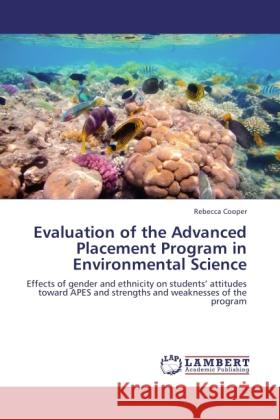Evaluation of the Advanced Placement Program in Environmental Science » książka
Evaluation of the Advanced Placement Program in Environmental Science
ISBN-13: 9783845475080 / Angielski / Miękka / 188 str.
Stakeholders perceptions of the Advanced Placement Program in Environmental Science (APES) in California, Florida, and New York were evaluated. Research questions focused on teacher and student profiles, attitudes toward APES, the effect of gender and ethnicity on attitudes, differences in self-report data by teachers and students, strengths and weaknesses of APES, and a match between implementation and the guidelines of the College Board. Twelve teachers and 355 students completed attitude surveys, and 10 students and one teacher were interviewed. The teacher and student survey data identified fieldwork and class discussions as important strengths of APES classes and insufficient field and lab work as the most significant weakness. Teachers reportedly did not follow many of the APES guidelines identified by the College Board, including: offering one lab a week and spending a significant amount of time doing fieldwork and working on environmental problems. To improve the APES program, the study recommended increasing the amount of time spent on lab activities, fieldwork, working on solutions to environmental problems, and hands-on activities.











